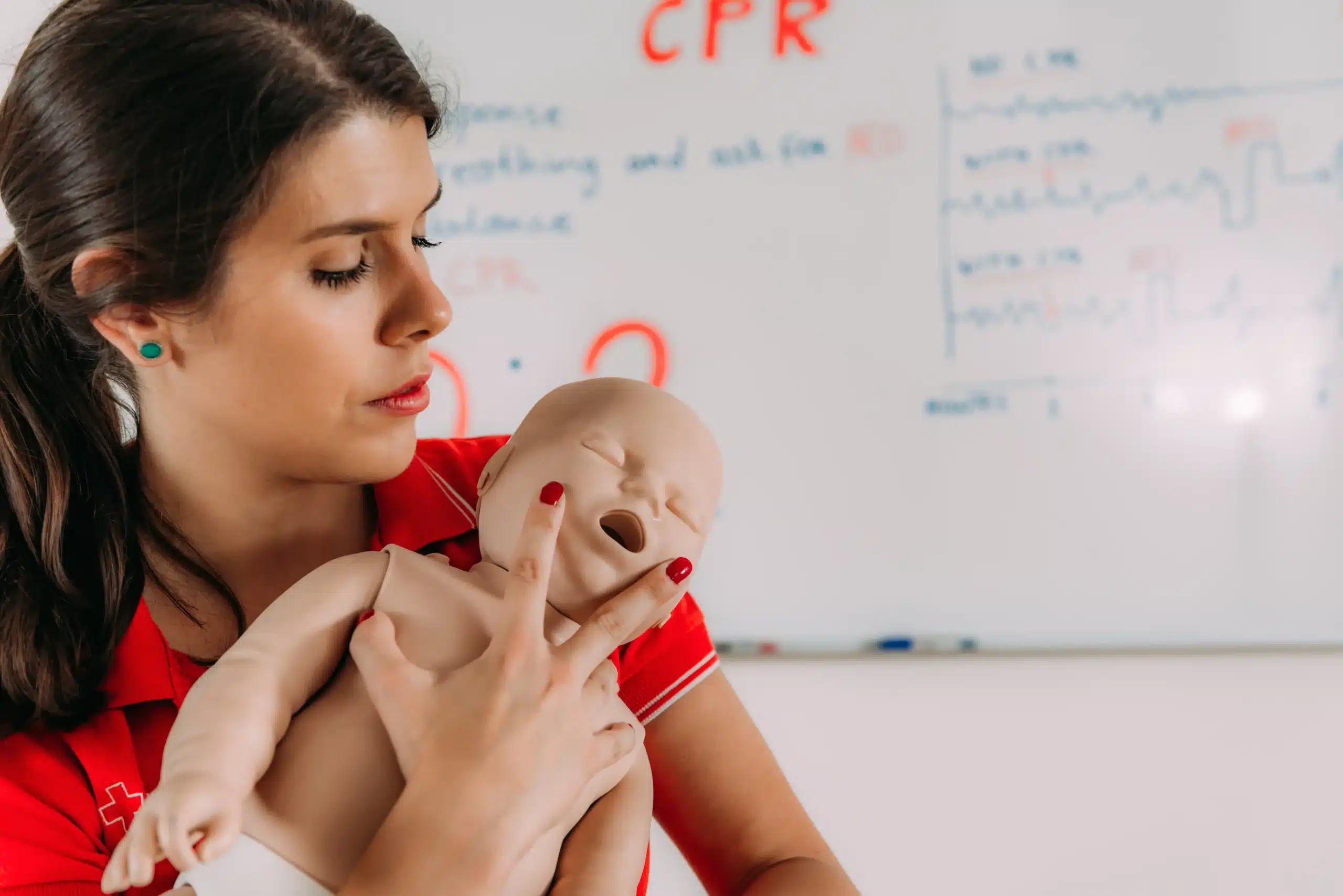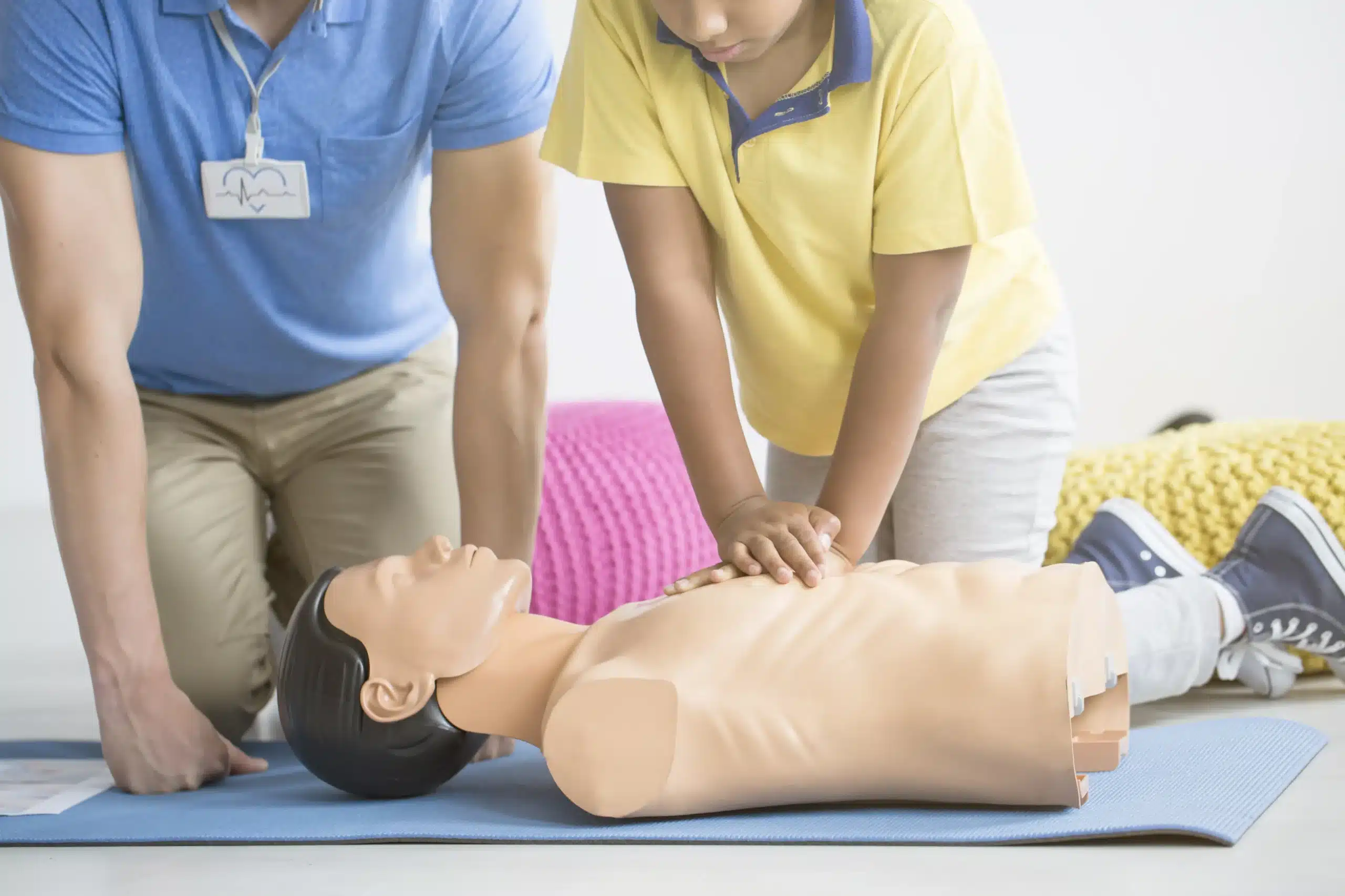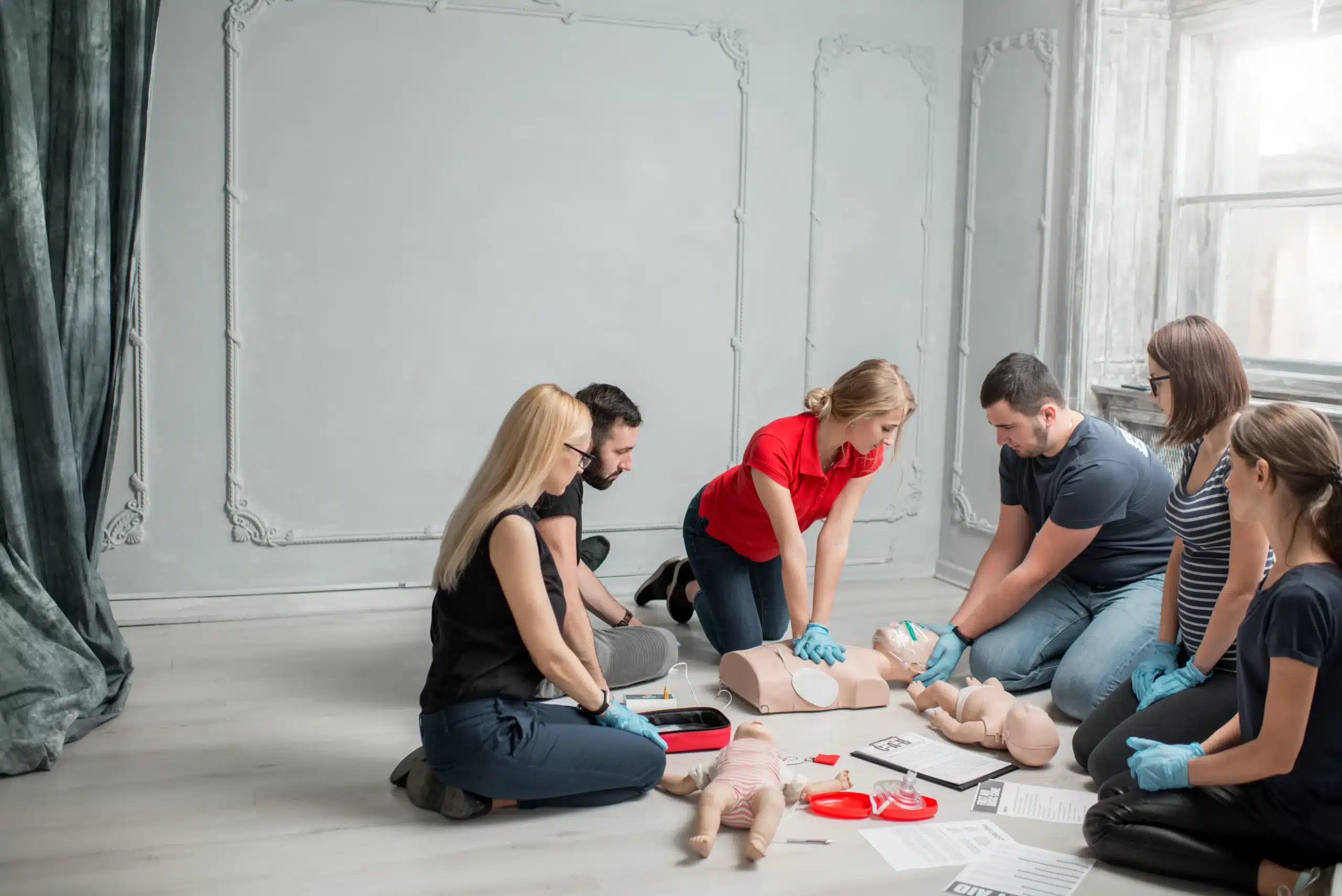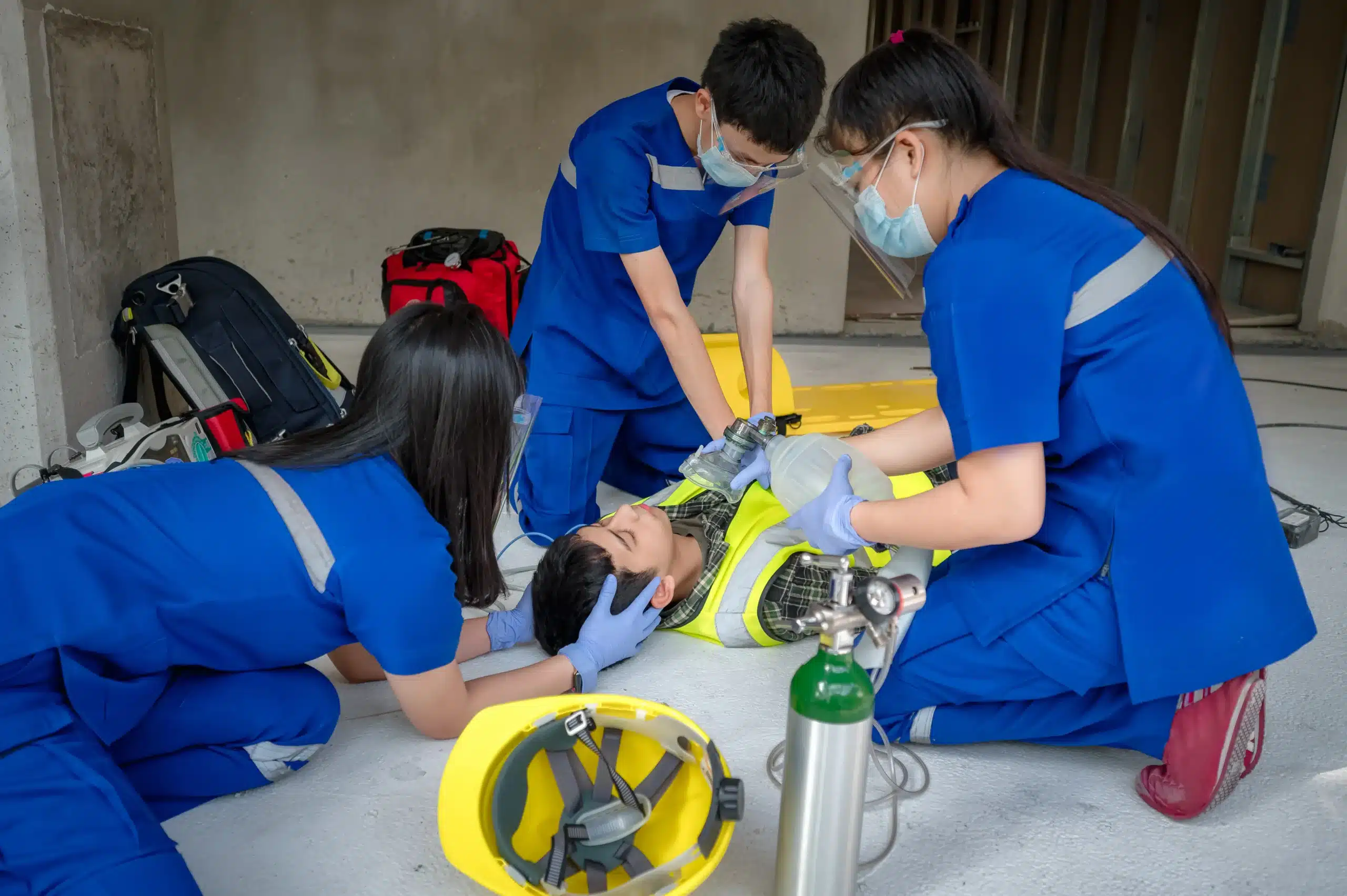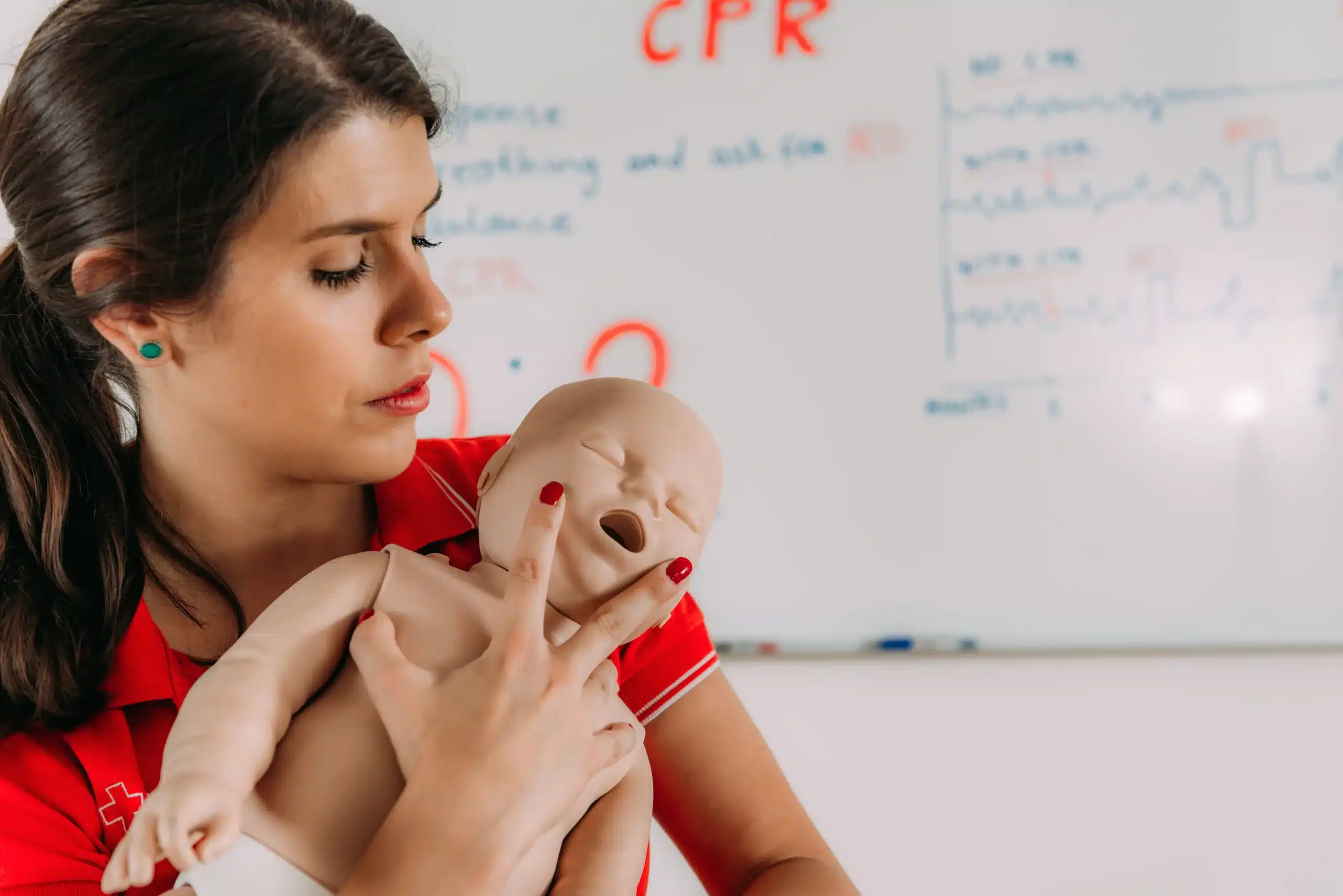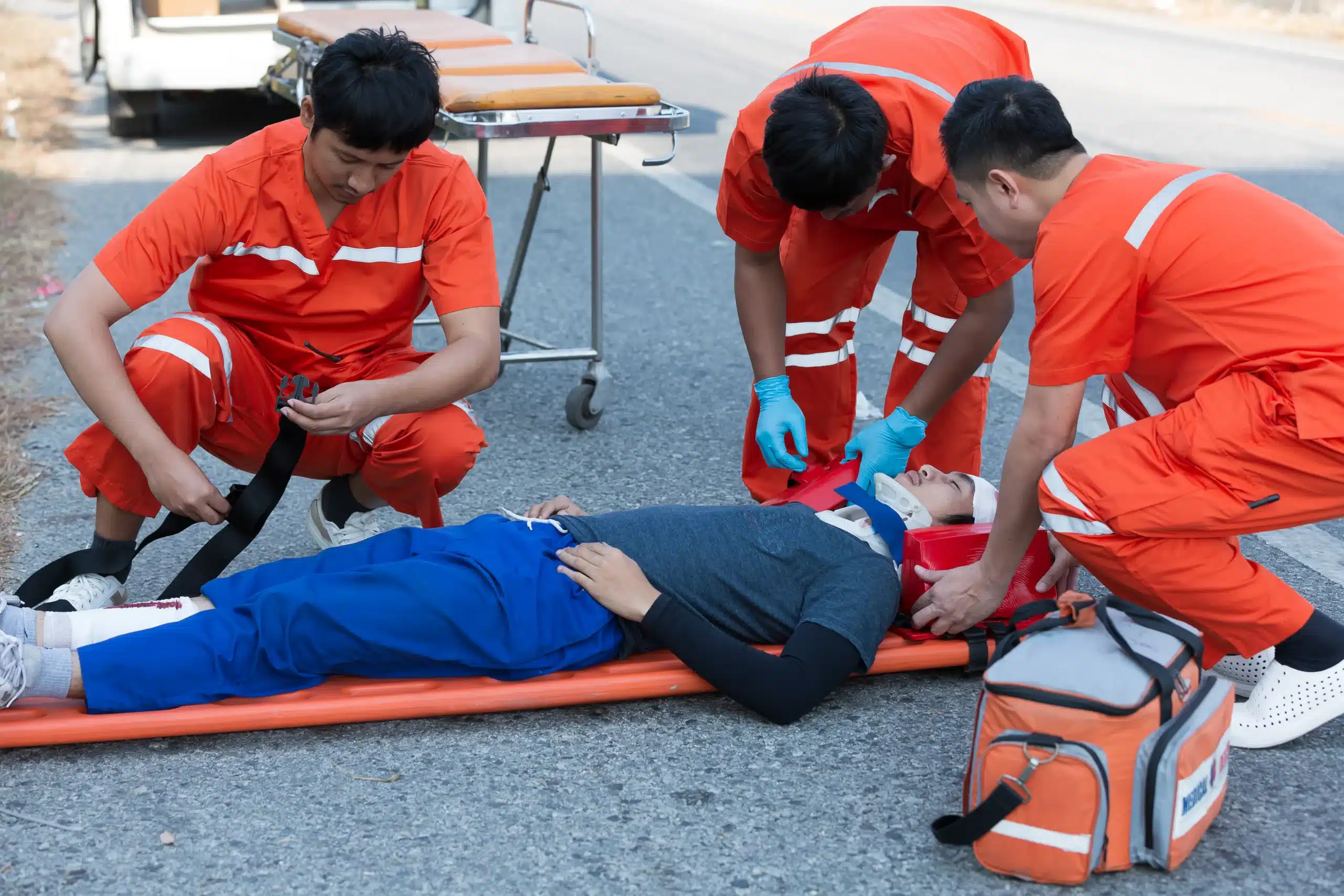Working with children is incredibly rewarding, but it also comes with a huge responsibility—ensuring their safety and well-being. As a childcare provider in California, you know emergencies can happen, and being prepared is key. That’s why EMSA (Emergency Medical Services Authority) courses in Carmichael are so important. These courses give you the skills and knowledge to handle everything from minor injuries to life-threatening situations. This post breaks down everything you need to know about EMSA courses, from what they cover to how to find the right training provider for you. We’ll explore the specific requirements for childcare providers in California, discuss the different types of EMSA courses available, and help you understand the certification process. Let’s get started so you can feel confident and prepared to care for the children you work with.
Key Takeaways
- EMSA certification is essential for California childcare providers: These courses equip you with life-saving skills like pediatric first aid and CPR, plus crucial knowledge in preventive health and safety. Find a trusted provider like Carmichael CPR Classes for convenient, comprehensive training.
- Various EMSA courses meet different needs: Whether you’re a healthcare professional needing advanced life support training or a parent wanting basic first aid skills, there’s a course for you. Choose the training that best aligns with your role and goals.
- Stay current with your EMSA certification: Regular renewal, typically every two years, ensures your skills and knowledge remain up-to-date. Check with your licensing agency or the EMSA website for the latest requirements and easily renew your certification through providers like Carmichael CPR Classes.
What are EMSA Courses?
EMSA stands for Emergency Medical Services Authority. In California, certain professionals, like childcare providers, need specific training to ensure they can handle emergencies effectively. That’s where EMSA courses come in. These courses cover essential life-saving skills and health and safety practices relevant to childcare settings. Let’s break down the different types of EMSA courses available.
CPR and First Aid Certification
CPR and First Aid certification are fundamental components of many EMSA courses. These certifications teach you how to respond to emergencies like choking, cardiac arrest, and other medical situations. Safety Training Seminars in Carmichael offers American Heart Association (AHA) certified CPR and First Aid training, giving you the skills to provide immediate care until professional medical help arrives.
Basic Life Support (BLS)
BLS certification goes a step further than standard CPR and First Aid. It’s designed for healthcare providers and professionals who need a more in-depth understanding of life-saving techniques. BLS courses cover everything from CPR and AED use to airway management and team communication during emergencies. This comprehensive training prepares you to handle more complex medical situations with confidence.
Advanced Cardiovascular Life Support (ACLS)
ACLS courses are advanced, specialized training programs for healthcare professionals who manage cardiopulmonary arrest and other cardiovascular emergencies. These courses build upon the foundational skills learned in BLS and delve into advanced airway management, pharmacology, and team dynamics in critical situations. Safety Training Seminars offers ACLS Certification along with other essential courses.
Pediatric Advanced Life Support (PALS)
Similar to ACLS, PALS courses focus on the specific needs of infants and children. These courses equip healthcare providers with the knowledge and skills to manage pediatric emergencies effectively. PALS certification covers everything from recognizing respiratory distress in children to providing appropriate interventions. You can find comprehensive PALS training at Safety Training Seminars.
EMSA Health & Safety Certification
Specifically designed for childcare providers in California, the EMSA Health & Safety certification covers a broad range of topics beyond basic first aid and CPR. This course includes training on immunizations, preventive health practices, recognizing and responding to childhood illnesses, and creating a safe environment for children in your care. It’s a crucial certification for anyone working in childcare in California.
What Do EMSA Courses Cover?
EMSA-approved courses equip childcare providers with essential skills and knowledge to ensure children’s safety and well-being. Let’s break down the key areas covered:
Immunizations and Preventive Health
This section focuses on understanding childhood immunizations, their importance, and how to maintain updated records. You’ll also learn about preventive health measures to minimize the spread of infectious diseases, identify signs of common illnesses, and implement effective sanitation practices within a childcare setting. Proper nutrition and the potential dangers of lead poisoning are also addressed. This knowledge helps providers create a healthier environment for the children in their care. For more information, check out our page on EMSA Child Care Health & Safety.
Pediatric First Aid Techniques
Pediatric first aid is a critical component of EMSA training. These courses teach how to respond to various childhood injuries and emergencies, from minor cuts and scrapes to more serious situations like burns, fractures, and allergic reactions. The curriculum includes a combination of classroom instruction, skills practice, and hands-on demonstrations to ensure participants acquire both the knowledge and practical skills necessary for emergency response. This hands-on approach builds confidence and prepares providers to act quickly and effectively in real-life scenarios.
CPR and AED Usage
Knowing how to perform CPR and use an AED can be lifesaving. EMSA courses cover CPR techniques specifically designed for infants, children, and adults, emphasizing the differences in approach for each age group. You’ll learn how to recognize the signs of cardiac arrest, perform chest compressions and rescue breaths, and operate an AED safely and correctly. These skills empower providers to respond confidently during emergencies and potentially save a life. After completing CPR and First Aid training, students receive an official EMSA-approved certification card, valid for two years.
Injury Prevention Strategies
Creating a safe environment is paramount in childcare. EMSA courses dedicate time to injury prevention strategies, covering common hazards in childcare settings and how to mitigate them. You’ll learn about safe sleep practices for infants, age-appropriate supervision techniques, and how to identify and eliminate potential dangers in play areas and other environments. By proactively addressing safety concerns, providers can significantly reduce the risk of accidents and injuries. More information on injury prevention strategies is available on our EMSA Health & Safety page.
Nutrition and Child Development
Understanding the nutritional needs of children at different developmental stages is crucial for their growth and well-being. EMSA courses cover basic nutrition principles, including appropriate portion sizes, healthy food choices, and how to accommodate dietary restrictions. This knowledge helps providers create meal plans and snacks that support children’s development and overall health. You can find additional details about our health and safety training on our website.
Choose Your Class Format and Schedule
Carmichael CPR Classes offers a variety of course formats and schedules to fit your lifestyle. Whether you prefer online learning or hands-on, in-person training, we have options to suit your needs. We also understand the importance of flexibility, so we offer a range of schedules to accommodate everyone.
Online Classes via Zoom
For those who prefer learning from home, our online EMSA Child Care Health and Safety classes are delivered via Zoom. These interactive sessions cover important topics like immunizations, preventive health, nutrition, and lead poisoning. We offer these online courses multiple times per month, making it easier to find a time that works for you. This format is perfect if you’re juggling multiple commitments or prefer the comfort and convenience of online learning.
In-Person Training
If you learn best in a hands-on environment, our in-person training sessions are a great option. Held at our Carmichael location at 6020 Rutland Drive, Suite 23, these courses provide direct interaction with our certified instructors and fellow participants. This allows for real-time feedback, demonstrations, and a more immersive learning experience. In-person training is especially helpful for those who value hands-on practice and direct interaction.
Flexible Scheduling
We know life can get busy, so we offer flexible scheduling for both our online and in-person courses. With online classes offered multiple times a month and daily in-person options, you can easily find a class that fits your schedule. This commitment to flexibility ensures that everyone has the opportunity to receive the essential training they need. Check our website for the most up-to-date schedule and find a class that works best for you.
Understand Costs and Certification
When considering an EMSA-approved course like the Child Care Health and Safety class, understanding the costs, certification process, and renewal requirements is essential. This section breaks down everything you need to know about investing in your training.
Course Fees and Inclusions
The EMSA Child Care Health & Safety course is priced affordably at $100. This comprehensive fee covers the course materials, instruction, and your official certification card. This all-inclusive pricing makes high-quality training accessible for aspiring childcare providers and seasoned professionals. Learn more about this program and our low price guarantee.
Get Certified
After successfully completing the EMSA course, you’ll receive an official American Heart Association certification card valid for two years. This nationally recognized certification demonstrates your competency in essential childcare health and safety practices. It’s a valuable credential for anyone working with children, assuring parents and employers of your skills.
Pass Rate and Guarantees
Carmichael CPR Classes is committed to your success. We offer a 100% pass rate guarantee for our EMSA courses. This means you can focus on learning, knowing we’ll provide the support you need to achieve certification. Our instructors are dedicated to helping you master the skills required to excel in your chosen field. Check out our available EMSA classes and find one that fits your schedule.
Renew Your Certification
To maintain your EMSA certification and stay current with the latest guidelines, renewal is required every two years. This involves completing four hours of pediatric First Aid and four hours of pediatric CPR. This refresher ensures your skills remain sharp and you’re prepared for pediatric emergencies. Learn more about the renewal process directly from EMSA. Staying current with your certification benefits the children in your care and demonstrates your commitment to professional development.
Who Needs EMSA Courses?
EMSA-approved courses equip individuals with essential lifesaving skills, covering everything from basic first aid to advanced life support. But who exactly benefits from this training? Let’s take a look.
Childcare Providers
For those working in childcare, having up-to-date CPR and first-aid training is crucial. Childcare providers are responsible for the safety and well-being of the children in their care, and emergencies can happen unexpectedly. A solid understanding of pediatric first aid and CPR can be critical in those moments. In California, specific EMSA Health & Safety certifications are often required for childcare providers.
Healthcare Professionals
Healthcare professionals, including doctors, nurses, and medical assistants, are often required to maintain current certifications in BLS, ACLS, and PALS. These courses provide the advanced skills needed to respond to various medical emergencies, from cardiac arrest to respiratory distress. Regular training ensures these professionals can deliver high-quality care in critical situations. Learn more about our BLS course offerings.
Parents and Caregivers
While not always mandated, EMSA training is highly recommended for parents, grandparents, nannies, and anyone regularly caring for children. Knowing how to respond to common childhood injuries, administer CPR, or recognize the signs of a serious medical condition offers invaluable peace of mind and could potentially save a life.
Foster Parents
Similar to other childcare providers, foster parents in California may be required to obtain specific EMSA Health & Safety certifications. These courses cover essential topics relevant to the unique challenges and responsibilities of foster care, ensuring the safety and well-being of the children they welcome into their homes. For more details, visit our page on EMSA Child Care Health & Safety.
Educators
Teachers, coaches, and other educators also benefit from EMSA training. From playground injuries to sudden illnesses in the classroom, educators must be prepared to handle a range of emergencies. Having the skills and knowledge to respond effectively creates a safer learning environment.
Top Carmichael EMSA Course Providers
Finding the right EMSA course provider is key for quality training and certification. Here are some top options in Carmichael:
Carmichael CPR Classes by Safety Training Seminars
Safety Training Seminars offers a wide range of courses, including CPR, BLS, ACLS, PALS, NRP, EMSA, and First-aid certifications. Serving Carmichael, Rancho Cordova, and Fair Oaks since 1989, they’re known for their commitment to customer service and convenient daily classes. If you need an American Heart Association certified course, Safety Training Seminars is a reliable choice.
American Red Cross
The American Red Cross is a familiar name in health and safety training. They offer Pediatric First Aid and CPR courses, essential for many childcare providers. When choosing a Red Cross course, make sure the instructors are certified to meet California’s EMSA requirements for childcare providers. This ensures your training is current and accepted.
American Heart Association
The American Heart Association sets the standard for CPR and emergency cardiovascular care. While they don’t typically offer classes directly, they authorize training centers like Safety Training Seminars. This means you can find convenient, AHA-compliant courses right in Carmichael.
National Safety Council
The National Safety Council is a respected name in safety training, known for comprehensive programs. While they may not have a training center in Carmichael, check their website for online or nearby options. They often provide helpful resources and training materials aligned with industry best practices.
Prepare for Your EMSA Course
Getting ready for your EMSA course doesn’t have to be stressful. A little preparation goes a long way toward a smooth and successful learning experience. Here’s what you need to know:
What to Bring
Keep it simple. Bring a photo ID, any relevant prior training certifications (like an expired CPR card), and a notebook and pen to jot down notes. Comfortable clothing is also a good idea, especially for the hands-on portions of the course. If you’re a childcare provider renewing your training, the Emergency Medical Services Authority (EMSA) recommends bringing documentation of your previous instructor’s certification to verify you received training from a qualified professional.
Pre-Course Study Materials
While pre-course study isn’t mandatory for most EMSA courses, refreshing your knowledge of basic first aid and CPR can be helpful. A quick online search can offer a refresher on these topics. The course itself provides comprehensive instruction, including classroom learning, skills practice, and hands-on demonstrations, so you’ll cover everything you need to know. Folsom CPR Classes offers a good overview of this blended learning approach, combining theory and practical application.
Tips for Success
Active participation is key to getting the most out of your EMSA course. Ask questions, engage in discussions, and take advantage of the hands-on practice sessions. Knowing how to respond quickly in an emergency can make all the difference, which is why practicing the skills you learn is so important. Hopewell CPR emphasizes this, highlighting the importance of quick action in emergencies. Practice regularly, both during and after the course, to build confidence and ensure you’re prepared for real-life scenarios. Your EMSA certification is valid for two years, so mark your calendar for renewal to maintain your qualifications.
Maintain Your EMSA Certification
Keeping your EMSA certification current is key to providing the best possible care. Here’s how to stay on top of things:
Continuing Education
Just like any important skill, your EMSA training needs refreshing. California requires child care providers to renew their certifications every two years by completing four hours of pediatric First Aid training and another four hours of pediatric CPR. This continuing education ensures you’re always prepared to handle emergencies and maintain a safe environment. Check with your local licensing agency or the EMSA website for the most up-to-date requirements. Carmichael CPR Classes offers convenient courses that satisfy these requirements, making renewal straightforward. Visit our CPR and First Aid Certification page for more details.
Stay Updated on Guidelines
Beyond continuing education courses, staying informed about the latest EMSA guidelines is crucial. Before signing up for any training, do your homework. Ask to see the training program, the instructor’s certification, or any documentation that verifies they’re authorized to train child care providers. This protects you from illegitimate training programs and ensures the course meets EMSA standards. A good tip is to check if the program offers the official EMSA-approved certification card, valid for two years, upon completion. For more information on EMSA-approved training, visit our EMSA Child Care Health & Safety page. Staying informed ensures you’re providing the highest quality care based on current recommendations. Our low price guarantee ensures you’re getting the best value for your training investment.
Choose the Right EMSA Course
Finding the right EMSA course in Carmichael depends on your specific needs. Whether you’re a childcare provider, healthcare professional, or just want to be prepared for emergencies, understanding the different options is key. Carmichael CPR Classes offers a variety of courses, including CPR and First Aid for the general public and childcare providers, BLS (Basic Life Support), ACLS (Advanced Cardiovascular Life Support), PALS (Pediatric Advanced Life Support), and NRP (Neonatal Resuscitation Program). Each course covers a different level of medical emergency response, so choose the one that aligns with your goals.
For childcare providers in California, the 8-hour EMSA Health & Safety, Nutrition, and Lead Poisoning certification is often required. This specialized EMSA course covers topics like immunizations, preventive health, and lead poisoning, in addition to pediatric first aid and CPR. It’s separate from a standard CPR/First Aid certification, which focuses solely on those life-saving skills. You can find more information on renewal requirements for childcare providers on the EMSA website. Generally, these certifications need renewing every two years with four hours each of pediatric First Aid and CPR training.
Carmichael CPR Classes makes getting certified convenient with a blended learning approach. Most classes involve a 1–3 hour online portion followed by a brief, in-person skills test. This allows for flexible scheduling and gets you your American Heart Association certification card the same day. For a comprehensive curriculum and convenient scheduling, explore the options available at Carmichael CPR Classes.
Related Articles
- EMSA Child Care Health & Safety – Carmichael CPR Classes
- Pediatric First Aid Training in Carmichael: A Parent’s Guide – Carmichael CPR Classes
- CPR Courses in Carmichael: Your Certification Guide – Carmichael CPR Classes
- BLS Certification Near Me: Your Complete Guide – Carmichael CPR Classes
- Advanced Cardiac Life Support in Rancho Cordova: Find Training – Carmichael CPR Classes
Frequently Asked Questions
What is the difference between CPR/First Aid certification and EMSA certification? CPR/First Aid certification teaches you the basics of responding to emergencies like choking, cardiac arrest, and injuries. EMSA certification, specifically for California childcare providers, goes further by including training on preventive health, safety regulations, and recognizing common childhood illnesses. Think of CPR/First Aid as the foundation, while EMSA builds upon that with specialized knowledge for childcare settings.
Which EMSA course is right for me? If you’re a childcare provider in California, the 8-hour EMSA Child Care Health and Safety course is likely required. For healthcare professionals, BLS, ACLS, or PALS might be necessary depending on your role. Parents, caregivers, or anyone interested in basic lifesaving skills would benefit from a standard CPR/First Aid course. Consider your specific needs and responsibilities when choosing.
How often do I need to renew my EMSA certification? EMSA certifications for childcare providers typically need renewal every two years. This usually involves completing four hours each of pediatric First Aid and CPR training. Always check with the EMSA website or your local licensing agency for the most current requirements, as they can change.
What can I expect during an in-person EMSA course? Expect a combination of classroom instruction, hands-on demonstrations, and practice sessions. You’ll learn the material, see it applied in real-life scenarios, and have the opportunity to practice your skills. Bring a photo ID, any previous certifications, and a notebook. Comfortable clothing is recommended.
What if I can’t attend an in-person class? Many providers offer online options, often through platforms like Zoom. These online courses cover the same essential material as in-person classes, making them a convenient alternative. Check with specific providers like Carmichael CPR Classes to see what online options they offer. Often, a brief in-person skills test follows the online portion.


